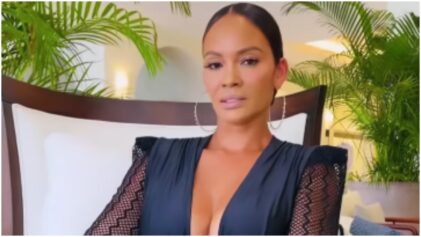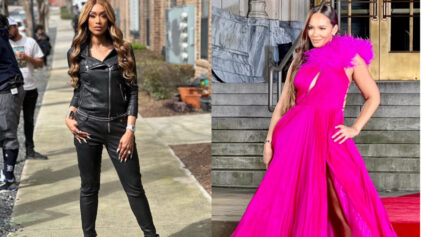As the public criticism of “Basketball Wives” intensifies with calls to boycott the show, former cast member Tanya Young Williams has come forward to reveal the manipulative and controlling ways that the producers employ to create drama, conflict and fisticuffs—including even lying to the women about things other cast members say about them.
“The show has been a disgrace and an insult to the intelligence of its viewing audience ever since the producers at Shed Media permitted the ‘women,’ and I use that term loosely, to slug out their differences,” Young Williams wrote in a column on The Daily Beast. “The show has been produced to look like an embarrassing, demeaning, degrading, violent, and outright ignorant display of our worst selves.”
But just as Williams, an attorney and ex-wife of former basketball star (and current inmate) Jayson Williams, yanks the covers off the scandalous show, R&B singer Monica (a basketball wife herself through her marriage to Phoenix Suns guard Shannon Brown) said she respects the women because “that’s their truth.”
“Mines is totally different but I respect them because they use that show as a platform to do other things that they love; they own stores, they own cosmetics, they own so many different things,” Monica told hiphollywood.com. “So I don’t have any issues with Basketball Wives at all because I think they are telling their truth. My truth is not like that.
Young Williams said it quickly became clear to her that going on the show was a bad idea, something she chose to do because she said she wanted to bring more attention to the National Domestic Violence Hotline, for which she is a celebrity spokesperson. She said she was shot for months by producers, including “wonderful” footage of her work with the hotline, an event at her home and “normal” outings with the other women, but she said the producers told her they weren’t interested in her storyline because she was too “sophisticated”—so she appeared in just two episodes during the first season of Basketball Wives LA.
“I certainly don’t miss the environment,” she wrote. “It was both toxic and controlling. Women were not allowed to communicate after shooting a scene; women were chastised as if they were children; high-ranking executives would childishly ignore cast members on the set; and producers would ‘ice’ cast members from working when they wanted to garner more outrageous conduct from them. Despite the ‘friendships’ portrayed on the screen, some producers purposely planted seeds of discord between the women, and told outright lies, hoping that conflict and drama would ensue.”
Young Williams said she believes the show would be more respectful of black women if there was at least one black woman among the producers.
“Nevertheless, the producers, the director, the cameramen (yes, they too are all men), and the tech personnel can’t force any cast member to throw a punch, toss a glass of water, or curse someone out,” she wrote. “The women must take responsibility for their actions and the resulting consequences.”


